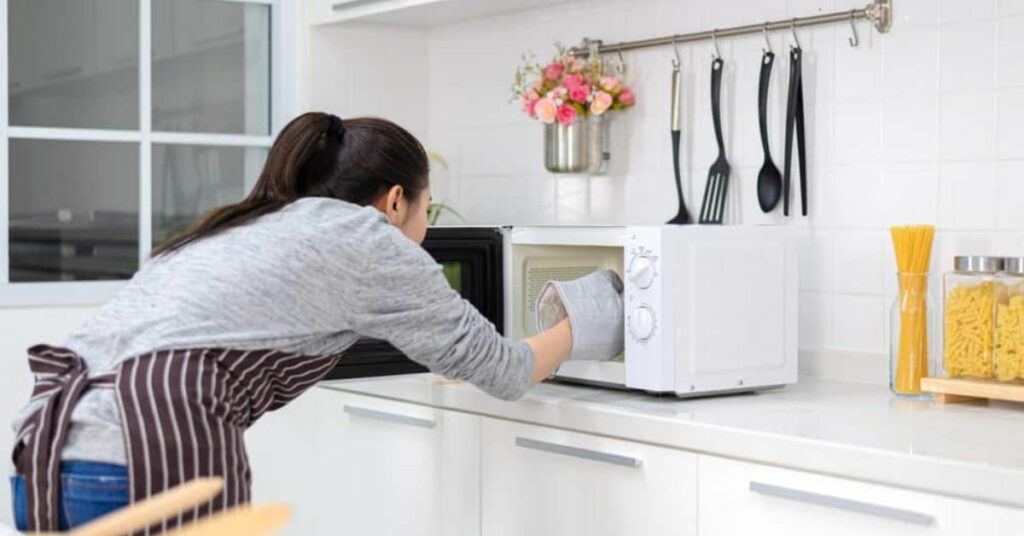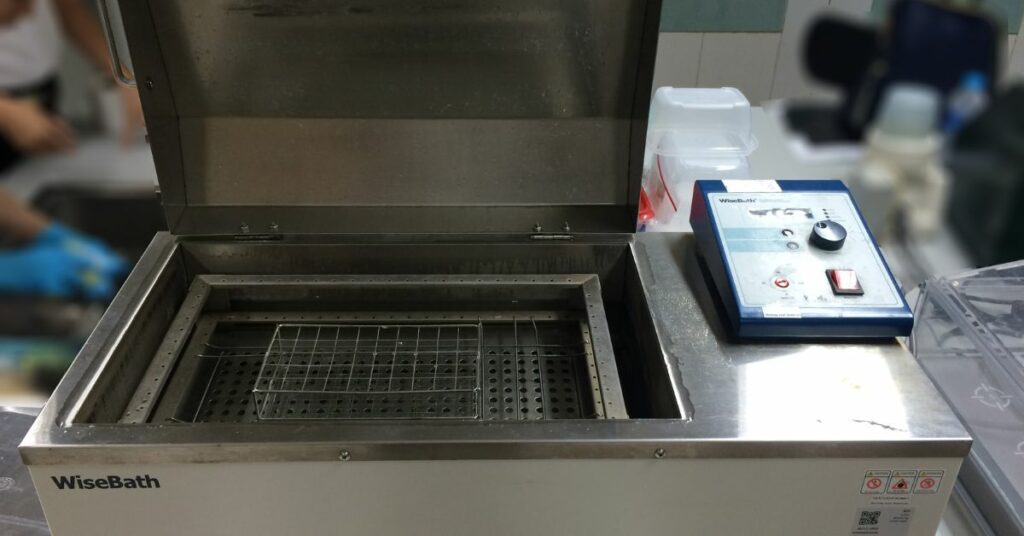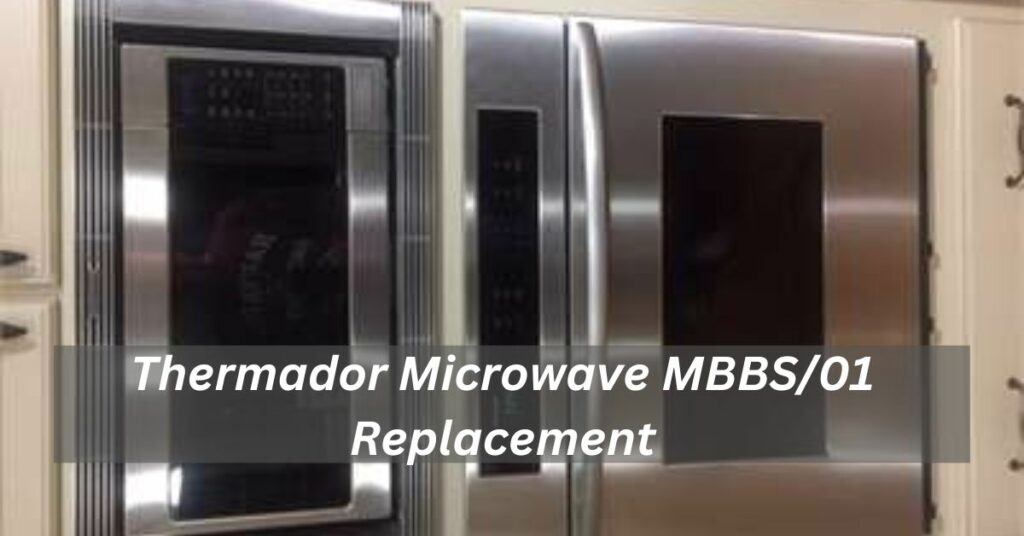Are you looking for an innovative way to microwave alcohol? But what happens when you microwave alcohol?
No, never microwave alcohol. It can be risky due to its explosive nature and potential for uneven heating.
We’ll explore the intriguing world of alcohol and microwave reactions in this post, including everything from unforeseen fireworks to possible health hazards. Get ready for an exciting ride!
Can You Microwave Alcohol?
Alcohol shouldn’t be heated in a microwave since it is dangerous and should be done cautiously. Alcohol is highly flammable, and its low boiling point produces fast evaporation, which might result in flames.
It is safer to let alcohol evaporate naturally rather than microwaving it.When handling alcohol in the kitchen, always use the advised safety precautions and consider native cooking techniques.
The dangers of microwaving alcohol:
- Microwaving alcohol is dangerous due to its high flammability and potential for explosions.
- Alcohol has a lower ignition point than water or food commonly heated in microwaves.
- Microwaving alcohol alters its properties and increases the concentration of alcoholic fumes.
- Avoiding microwaving alcohol is necessary for safety, despite the convenience it may offer.

Read more: Cold Air Coming From Microwave-Causes And Diagnosing The Problem
Interactions between alcohol and microwaves:
When microwaving alcohol, it’s essential to exercise caution and follow some user-friendly guidelines. Microwaves heat unevenly, which can lead to unexpected consequences when dealing with alcohol. To prevent accidents, avoid microwaving alcohol by itself.
If you need to use alcohol in a recipe or dish, it’s safer to add it after microwaving. When heating alcohol-containing dishes in the microwave, always use microwave-safe cookware and containers.
Additionally, allow the word to stand for a moment after microwaving to let any alcohol vapours dissipate before handling or consuming it. These precautions ensure that your interactions with alcohol and microwaves remain safe and problem-free.
Potential Risks of Microwaving Alcohol:
Microwaving alcohol can pose several potential risks, primarily due to its highly flammable nature and the microwave’s uneven heating process. Here are some of the dangers associated with microwaving alcohol:
- Flammability:
Alcohol is highly flammable, and its vapours can ignite easily. When heated in a microwave, these vapours may accumulate, and any ignition source, such as a spark or hot spot, can lead to a fire or explosion.
- Uneven Heating:
Microwaves heat unevenly, and this can cause localized overheating in the alcohol-containing dish. The variable heat distribution may result in the alcohol reaching its boiling point in certain areas, potentially causing splattering or even a sudden eruption.

- Pressure Buildup:
As alcohol heats, it can produce vapour, increasing pressure within a closed container. If the container is not vented, this pressure buildup can result in an explosion when the container is opened or disturbed.
- Loss of Volatile Compounds:
Microwaving alcohol-containing dishes can lead to the loss of volatile compounds that contribute to the flavour and aroma of the plate. That may affect the overall taste and quality of the prepared food or beverage.
- Safety Hazards:
Microwaving alcohol may pose safety hazards, such as the risk of burns from hot containers, handling heated dishes, or even the potential for fires if alcohol vapours are ignited.
Read more: Microwave And Fridge On Same Circuit-Complete Guide
Alternatives to heating alcohol safely:
Safely heating alcohol can be essential for various culinary and medical purposes. Here are some alternatives to heating alcohol without using a microwave:
- Double Boiler:
A double boiler is a gentle way to heat alcohol. Place a heatproof bowl containing the alcohol over a pot of simmering water. The indirect heat ensures gradual and controlled warming without exposing the alcohol to an open flame or high temperatures.
- Electric Heating Pad:
In medical applications where alcohol is needed for warming compresses or other therapeutic purposes, electric heating pads can be a safe alternative. These pads allow precise temperature control, reducing the risk of overheating.
- Water Bath:
For gentle and even heating, consider a water bath. Place the alcohol container within a larger container filled with warm water. The indirect heat will slowly warm the alcohol without direct exposure to heat sources.

- Chemical Warming Bags:
In medical settings, chemical warming bags can safely heat alcohol packs for therapeutic use. These single-use bags contain a safe, non-toxic solution that generates heat when activated, providing a controlled and reliable warming method.
Faqs:
1. Can you microwave alcohol?
No, it is not safe to microwave alcohol as it can lead to accidents and potential fires.
2. Will microwaving alcohol make it boil faster?
Microwaving alcohol can cause it to heat up rapidly, but it may not necessarily reach its boiling point before dangerous situations occur.
3. Is heating alcoholic beverages in a microwave safe?
It is generally safer to avoid heating alcoholic beverages in the microwave due to the potential risks associated with rapid heating.
4. Can microwaving alcohol affect its taste or quality?
Yes, microwaving alcohol can alter its flavour and overall quality, potentially making it less enjoyable.
5. Are there any alternatives for heating alcoholic drinks?
Yes, using conventional methods like stovetops or hot water baths are safer options for warming up alcoholic drinks.
6. What safety measures should I take when using microwaves with alcohol?
Always remember never to heat pure alcohol in the microwave. If you need to warm an alcoholic beverage, ensure proper ventilation, use microwave-safe containers without tightly sealed lids, and monitor closely during heating.
Read more: High Pointe Microwave Recall-Reasons And Troubleshooting
Conclusion:
In conclusion, microwaving alcohol can have dangerous consequences. Because alcohol vapours evaporate quickly, there is a risk of explosion. However, it can also result in the production of poisonous gasses and other hazardous byproducts like formaldehyde.
Furthermore, heating alcohol in a microwave might produce hot patches that can catch fire or cause burns. Therefore, it’s crucial to avoid microwaving alcohol and instead choose safer methods of heating or consuming it.




